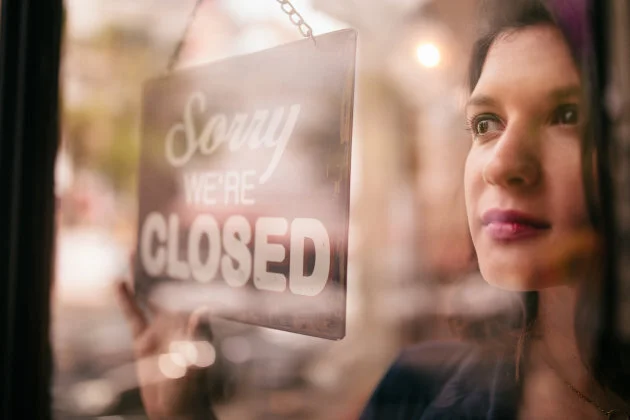Your Neighbour Small Business Owner Isn’t a ‘Fat Cat Tax Cheat’
When the government announced its plans to review the fairness of Canada's taxation system, Canada's small businesses were not pressing the panic button. After all, there are all sorts of unfair tax rules and abuses, including large corporations shifting income overseas to avoid Canadian taxes, the ability to deduct and split the fat pensions of government employees and even the ability for some to set up fake private companies to benefit from small business tax provisions. Going after tax cheats — personal or corporate — is important work and I take no issue with government tightening rules and/or throwing the book at those guilty of abusing Canada's tax system.
But unfortunately, rather than pursuing tax cheats, the federal government has put forward proposals that essentially accuse the vast majority of business owners of dodging their fair share of taxes. Legitimate small business tax rules — put in place by previous Liberal and Conservative governments to support small business growth and expansion — are now thought of as loopholes being exploited by the fat-cat owner of the neighbourhood coffee shop, chiropractor or dry cleaner.
What has upset business owners more than anything are the comparisons made between the income of the small business owners and that of employees. Don't get me wrong, Canadian employers work hard to support their employees and believe they shouldn't be hit with punishing taxes, either.
But to suggest that the ways a business owner draws income are the same as that of an employee is a big stretch. After hearing from a large number of members of the Canadian Federation of Independent Business, I figured I needed to share with our government the top 10 ways small business owners (and their income) are different than employees.
1. Risk
Business owners take on massive risks in order to earn a living, and when they do, the entire family is involved. Many business owners empty their savings, re-mortgage their homes and borrow from friends, family and banks to get their business going. If the business fails, and many do, the family is often set back for years.
2. Getting paid last
A small business owner gets paid AFTER everyone else, including employees, suppliers, landlords and, of course, governments. I've heard thousands of stories of business owners taking home next to nothing in tough times in order to ensure they could pay and hang onto their valued employees.
3. Higher effective tax burden
While some think the corporate tax rate is the only tax paid by the business owner, the reality is much different. When a business owner draws a salary or dividends from the corporation, they pay personal income taxes just like the next guy. Research shows the effective tax rate on business owners is far higher than at first glance, when one considers all the unique taxes business owners pay or the higher rates they pay for Employment Insurance (1.4 times the employee rate) or property taxes (often two to five times higher than homeowners).
4. Serving as unpaid tax collectors for society
In addition to their own business and personal taxes, governments require business owners to collect and remit all sorts of taxes to benefit society and employees, including sales taxes, CPP and Employment Insurance premiums and environmental levies. Not only are business owners on the hook for any mistakes, they carry all the administrative costs associated with collecting and remitting these taxes, including at least $500 million in credit card processing fees on sales taxes.
5. Working hours
Have you ever wondered why the owner of your local dry cleaner is there when it opens at 6 a.m. and when it closes at 7 p.m.? More than 40 per cent of owners work 50 hours or more per week — compared to only six per cent of employees. Long after the employees go home, the owner is at work working to keep the place going.
6. Vacations
While employees enjoy paid vacation and paid statutory holidays, employers are on their own. Most business owners report that it is years before they can take any time away from their business whatsoever.
7. Benefits
Many employees — particularly those in government — enjoy health, dental and other benefits courtesy of their employers. Again, the business owner depends on the success of the business to fund any benefits they or their own family may need.
8. Paperwork and red tape
Think you have struggles with the Canada Revenue Agency or other government departments? Consider the massive number of rules, regulations and agencies a small business has to deal with. Want to start a bicycle repair shop in Winnipeg? You will need to register with up to 44 different agencies before you start. A Halifax dentist needs up to 45 permits to earn a living.
9. Access to financing
An employee's letter of offer or pay records is often all that is needed to get a mortgage or car loan. A small business owner often has far more complicated needs and has a much more challenging time convincing a bank for a business or personal loan. Indeed, one of the main reasons we have a lower rate of taxation on small business income is to allow business owners to pump the savings back into growing their business.
10. Retirement
While government workers have gold-plated pensions often starting at age 55 and many employed Canadians have employer-matched RRSPs, the small business owner is counting on the value of the business — including any investments owned by the corporation — for his or her retirement. Think the bigger CPP is going to help business owners? Keep in mind that business owners have to pay twice what employees do into the CPP each year.
Sadly, there are lots of Canadians (and it appears many politicians) who believe that hanging out a shingle to say you're in business is a licence to print money. I represent 109,000 entrepreneurs who tell me differently. In fact, Statistics Canada data shows that employers are about four times more likely to be earning less than $40,000 than more than $250,000. Here's hoping the federal government recognizes the important differences between the income of business owners and employees, and abandons these proposals that will harm our entrepreneurs and our economy.
Dan Kelly President, Canadian Federation of Independent Business

